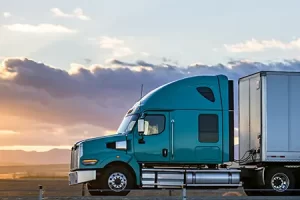In the realm of commercial trucking, fleet managers face numerous challenges in maintaining smooth operations and preventing costly disruptions. One significant area that can have a profound impact on the industry is insurance litigation, which arises from accidents, breakdowns, and other incidents that result in insurance claims. However, with the advent of sophisticated technology solutions, fleet managers now have powerful tools at their disposal to mitigate insurance litigation risks and keep their operations running seamlessly.
One of the key ways technology is transforming the landscape of insurance litigation in the trucking industry is through advanced telematics systems. These systems provide fleet managers with real-time insights into their vehicles’ performance, allowing them to monitor critical metrics such as speed, location, and driver behavior. By leveraging this data, fleet managers can proactively identify and address potential risk factors that could result in accidents or insurance claims. For example, if a telematics system detects a driver engaging in risky behavior such as excessive speeding or harsh braking, fleet managers can provide feedback and training to improve driver behavior, reducing the likelihood of accidents and subsequent insurance claims.
In addition to telematics, predictive analytics is another powerful technology that is helping fleet managers mitigate insurance litigation risks. By analyzing vast amounts of historical and real-time data, predictive analytics algorithms can identify patterns and trends that can indicate potential risks in the future. For instance, by analyzing data on driver behavior, weather conditions, and vehicle maintenance records, predictive analytics can identify drivers or vehicles that may be at a higher risk of accidents or breakdowns. With this information, fleet managers can take preventive measures such as scheduling maintenance or implementing additional training to mitigate these risks and reduce the frequency of insurance claims.
Furthermore, technology is also driving improvements in safety, which can have a significant impact on insurance litigation in the trucking industry. Advanced safety features such as collision avoidance systems, lane departure warnings, and fatigue monitoring tools are becoming increasingly prevalent in commercial trucks. These technologies can detect potential safety risks and alert drivers in real-time, helping them take preventive measures to avoid accidents. By reducing the frequency of accidents and insurance claims, these safety technologies contribute to mitigating insurance litigation risks and minimizing disruptions to fleet operations.
Moreover, technology is also playing a crucial role in documenting incidents and streamlining the insurance claims process. With the use of dashcams and other video recording devices, fleet managers can capture real-time footage of accidents or incidents that may result in insurance claims. This documentation can provide valuable evidence in insurance litigation, helping fleet managers defend against fraudulent or exaggerated claims, and expediting the claims process. Additionally, digital record-keeping and data management systems allow fleet managers to efficiently organize and retrieve important information related to incidents or claims, reducing administrative burden and ensuring accurate reporting.
Telematics is also facilitating loss of use coverage in the commercial trucking industry. Loss of use coverage, also known as rental reimbursement or downtime coverage, is a type of insurance that provides compensation for the revenue lost when a commercial truck is out of service due to an accident or breakdown.
Digital record-keeping and data management systems can streamline the documentation and submission process for loss of use claims, reducing administrative delays and improving the efficiency of the claims process. Furthermore, technology solutions such as fleet management software and asset tracking tools can help fleet managers optimize their operations and minimize the impact of downtime on their revenue. By identifying alternative available vehicles, rerouting deliveries, and efficiently scheduling maintenance or repairs, fleet managers can mitigate the financial loss associated with a commercial truck being out of service. These technologies also enable fleet managers to communicate proactively with customers, providing real-time updates on delivery delays and managing customer expectations.
Overall, the integration of technology in the management of loss of use coverage can help fleet managers effectively navigate the complexities of insurance litigation related to downtime and revenue loss. By leveraging technology solutions, fleet managers can optimize their operations, accurately document loss of use claims, and minimize the financial impact of downtime, ultimately contributing to a more efficient and effective insurance litigation process in the commercial trucking industry.







